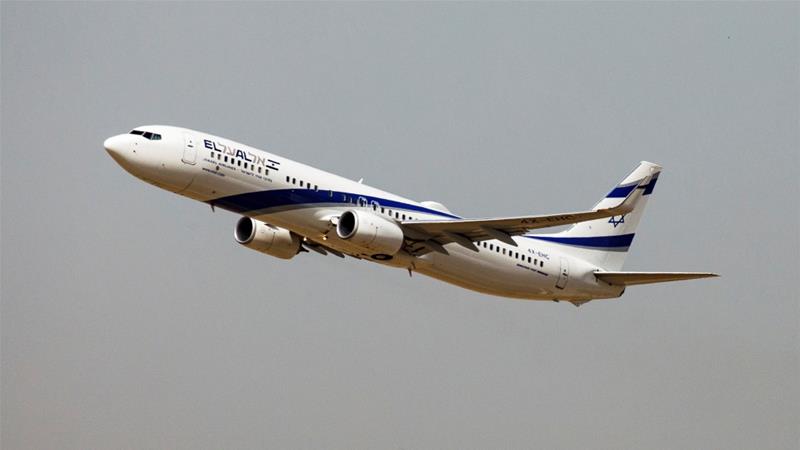Israeli commercial planes began overflying Sudan, Prime Minister Benjamin Netanyahu said, casting the new air corridor as a result of a breakthrough meeting with the African Muslim country's de-facto leader this month.
Khartoum said on February 5 it had given Israeli planes initial approval to fly over its territory, two days after Sudan's military head of state, Abdel Fattah al-Burhan, met Netanyahu in Uganda.
"Now we're discussing rapid normalisation. The first Israeli airplane passed yesterday over the skies of Sudan," Netanyahu said in a speech to US Jewish leaders on Sunday, saying the route cut some three hours off flights from Israel to South America.
Sudan has stopped short of saying it is normalising ties with Israel.
After the meeting in Uganda, the Associated Press news agency quoted a Sudanese military official as saying the decision was coordinated by the United Arab Emirates (UAE) and also aimed at removing Sudan from the US's list of "state sponsors of terrorism".
Security threat?
In January 2016, Sudan's former Foreign Minister Ibrahim Ghandoor said normalising relations with Israel would be possible in exchange for the lifting of US sanctions on his country.
The corridor described by Netanyahu would also take planes over Egypt, which signed a peace deal with Israel in 1979, and Chad, which in 2018 restored long-severed relations with Israel.
Normalising relations with Sudan, where Arab states gathered in 1967 to issue what became known as the "Three No's" - no recognition of Israel, no peace with Israel, and no negotiations with Israel - would allow Netanyahu to burnish his diplomatic credentials a month before Israel's March 2 election.
Since the al-Burhan-Netanyahu meeting, the air corridor has been the most prominent development discussed publicly by both sides.
The restoration of ties was decried by Palestinian leaders, with Palestinian political factions saying the move undermined efforts to thwart US President Donald Trump's so-called Middle East plan for Israel-Palestine.
The plan heavily favours Israel and proposes it keep all its illegal settlements in the occupied West Bank and East Jerusalem, territories captured by Israel in the 1967 war.
Israeli commentators have speculated the new contacts with Khartoum could allow for the repatriation of undocumented Sudanese migrants in Israel, and Israel could in turn lobby the United States to improve Sudan's standing in Washington.
SOURCE: Al Jazeera and news agencies



